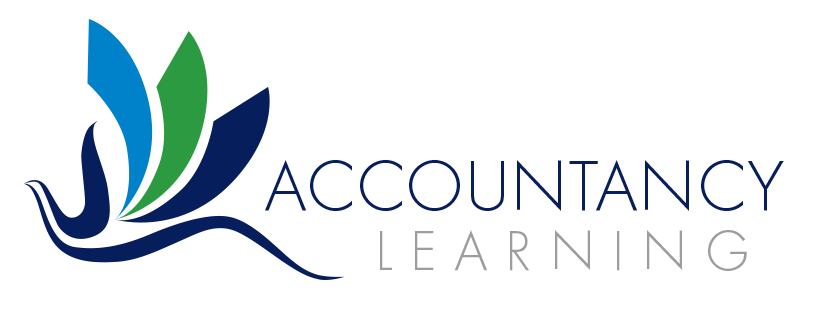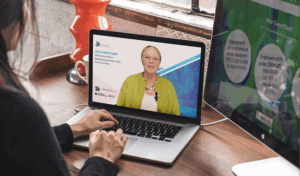Have You Got Your Head In The Clouds?
Ten years ago most of us hadn’t heard of ‘the cloud’ but these days cloud accounting is fast becoming the most popular way for businesses to maintain their financial records.
In our fast-moving world of technological change, accountants are used to ‘just getting on with it’ when it comes to the latest software or hardware development. With cloud accounting, it will not be a case of ‘just getting on with it’. The widespread implementation of cloud accounting has significant implications for businesses and for the accountants who advise them. Student accountants who are going to be successful in this new environment need to recognise how the profession they are joining is likely to change over the next few years.
What makes cloud accounting so significant? Let’s start with a brief description.
Cloud accounting software performs all the same functions of an accounting software package such as Sage50. The key difference is that software is not loaded onto a business’s own computers, but instead kept on remote servers. Accounting information is sent into ‘the cloud’ where it is processed and returned to the user.
Software can be accessed from any computer with an internet connection and is paid for by monthly subscription. It can therefore provide great flexibility, particularly as records are automatically updated in real time. Inevitably, the use of remote servers means that data security can be a concern, but the rapid take-up of this type of software indicates that, for many businesses, the advantages outweigh the disadvantages.
So what makes cloud accounting different? Why is it expected to change the way businesses operate?
The first difference comes from the time-saving aspect of cloud accounting software. Documents such as invoices, till receipts etc. can be instantly scanned and posted automatically to the accounting system leaving the accountant to check and confirm the entry. Posting of documents will become very much quicker, requiring fewer staff to process data.
The next difference is the immediate access to data. Accounting records are updated immediately and a real-time view of the business’s financial position is available at any time. This is a radical change from the traditional preparation of financial statements only at the end of the financial year.
Will there be accounting jobs to go to?
Reading all this, you may be starting to worry about your future. Most commentators believe that these changes are actually a cause for optimism, not concern. The nature of the accountant’s role is likely to change considerably, but remember that someone with an AAT qualification has a level of financial expertise that the vast majority of the population cannot match, and that includes business owners. In future, accountants are likely to do far less of the day-to-day processing of data that takes up their time now and far more of the advice and guidance that there is insufficient opportunity for at present. With real-time data enabling a review of the overall business position at any time, accountants will be able to identify potential problems early.
The evolving role of the Accountant
Advice and guidance on how to run a business more efficiently, how to develop and grow a business, and so on, will become the normal day-to-day activity of the accountant. Over the next decade or longer, the impact of Brexit will create vulnerabilities for both individual businesses and the economy as a whole. Good financial advice will be essential to the development of a strong business environment and economic success.
While the AAT education and training scheme will provide you with much of the knowledge and expertise you need to embrace this new kind of role, there is more to do. Accountants will need to develop a questioning approach to every aspect of their job. Just because something has been done in a certain way for years, does that necessarily make it the best method of operating? Businesses that operate efficiently will be able to make more effective use of their resources, including their most valuable resource, the workforce. Increased efficiency benefits employers and workforce alike, creating more interesting jobs, increased profitability and greater job security.
Standard accountant to a valuable business advisor
Accountants, whether working in the heart of a company in the finance department, or operating as external advisers, are particularly well-placed to identify ways to improve operating methods, as long as they are able to take a step back from what is immediately in front of them to see the picture as a whole.
Accountants will need to be more aware of the bigger picture in all their interactions with businesses. Financial decisions need to be made in the wider context of the planned objectives for the business as a whole. A decision to recommend saving money by making marketing department staff redundant, may not be a good decision for the whole business where the objective is to increase sales and market share. An effective accountant will understand how a decision made for financial reasons has other implications and will advise accordingly.
Finally, accountants need to appreciate how world events, whether political or economic, can affect business activities. Accountants must take the time to understand what is going on in the world, and consider how those events may affect the activities of a business or the environment in which it operates. In future, accountants who maintain a narrow and parochial view of the world, or their job role, will find themselves increasingly restricted in the kind of jobs available to them. Accountants must ensure that their advice and guidance has a relevant wider context.
Change is inevitable yet provides opportunities
So to summarise, whilst change is often seen as a bad thing, in the modern world the only certainty is that there is no certainty! However we regard change, it is inevitable and it is those accountants who are outward-looking and flexible who will best manage the transition in the accountant’s role from data processor to business advisor.




